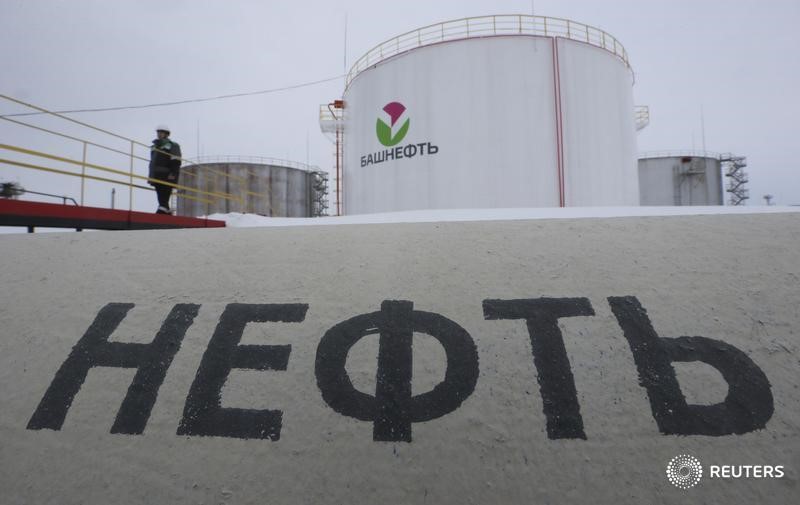(Bloomberg) -- As leaders around the globe compete with ever-bigger spending packages, the Kremlin is hoarding hundreds of billions of dollars in reserves, worried that oil prices will stay low for a long time.
Russia has about $550 billion stashed away in some of the biggest rainy-day funds in the world, but President Vladimir Putin’s support measures only account for about 2% of gross domestic product, according to ING Bank.
During the 2008-2009 global financial crisis, the country spent a tenth of GDP to counter the collapse but was able to rebuild its reserves within just a few years as crude rebounded. This time around the Kremlin is hunkering down for a prolonged period of low export revenues.
“Oil prices have fallen below a level anyone thought imaginable,” said Alexandra Suslina, a budget specialist at the Economic Expert Group, a Moscow think-tank that advises the government. “They need to spend the reserves carefully because that’s all there is.”
The approach has caused outrage among business owners and lobby groups, who warn that insufficient stimulus could lead to mass unemployment, bankruptcies and a deep economic slump. The central bank estimated that a government ruling for most Russians to work from home for the whole of April could knock 1.5% to 2% off growth this year, while the budget is being re-written to prepare for oil prices at $20 a barrel.
“So far there are promises but no help, I don’t know even one businessman who received help and almost everyone has suffered,” said Aleksandr Khurudzhi, head of the Business Protection Association in Moscow.
What Our Economists Say:
“Russia is doing less than most countries on the fiscal front to cushion the blow from lockdowns and spillovers. That might be justifiable given the collapse in crude, but the consequence will be a deeper recession and slower recovery.”
--Scott Johnson, Bloomberg Economics
The government’s stimulus package, which will be partly funded by taxes on the rich, so far amounts to a 300 billion ruble ($3.9 billion) fund to support struggling firms, and some tax and mortgage breaks. Before the crisis, the government was planning to boost spending this year, and officials have stressed that they won’t cut that.
Prime Minister Mikhail Mishustin said last week that the government has reserved 1.4 trillion rubles if needed, although it wasn’t clear what the money would be spent on and how much would come from existing budgets.
“There’s a lot of discussion about using the budget to give people handouts, but that’s just not right,” Moscow Mayor Sergei Sobyanin said on state TV last week. “The budgets will burst, they’re already struggling to cope with the strain on healthcare.”
Alexei Kudrin, a former finance minister called last week for the strict rules that limit spending from the $165 billion wealth fund, the liquid chunk of Russia’s reserves, to be altered to free up money. He said a mechanism needs to be created to distribute support directly to people. Sergei Guriev, the former chief economist at the European Bank for Reconstruction and Development, said Russia should be spending around 10% of GDP.
For the moment though, the Kremlin seems to be focused on husbanding its huge reserves to make sure they last for years.
“The government will wait until the end of May to see where oil prices are and if they have more financial capacity to help,” said Natalia Orlova, chief economist at Alfa-Bank in Moscow. “If oil prices settle on some new low and don’t come back up, then that would be alarming.”
©2020 Bloomberg L.P.
